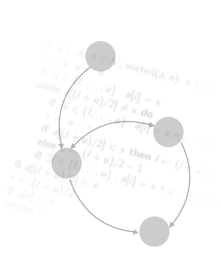Padesátétřetí setkání Pražského informatického semináře
Tomáš Pevný
Steganography
Steganography communicates a secret message as an innocuous looking object concealing the fact that something important is being communicated.
Steganography communicates a secret message as an innocuous looking object concealing the fact that something important is being communicated.

Steganography communicates a secret message as an innocuous looking object concealing the fact that something important is being communicated. Steganography is therefore more devious than cryptography, since when someone uses the latter, everyone knows that something is being hidden. Throughout history, steganography has been used by spies, agents, dissidents, and criminals. The oldest documented uses come from the old Greece at 5 BC. With the advent of digitization, steganography has moved to the new media such as digital images, video, text, file systems, etc.
I will introduce the topic by talking about major breakthroughs in which I have participated, which have ultimately led to the most principled design of steganographic algorithms known to date, theoretically applicable to a diverse set of media such as images or sound. We will explain how error-correcting codes revolutionized the field. Since then, creating a new steganographic algorithm is equal to finding a good model of the noise. This is surprisingly difficult. Our first algorithm embracing this paradigm was broken in the first steganographic contest that we have organized. The rest of the talk would be devoted to the design of noise models by a combination of game theory and adversarial machine learning.
Tomas Pevny is an associate professor at FEE, CTU in Prague. While his main interest was machine learning, an offer to study in USA at Binghamton University introduced him to steganography, in which he pursued his PhD. After one year of post-doc in Grenoble, France, he returned in fall 2009 to CTU and remained there since then, with part-time excursions to Cognitive security, Cisco systems and Avast (now Gen digital). His current research interest is in tailoring machine learning for computer security. He has co-authored more than 50 papers and holds approximately 20 patents.
Jeho program je tvořen hodinovou přednáškou, po níž následuje časově neomezená diskuse. Základem přednášky je něco (v mezinárodním měřítku) mimořádného nebo aspoň pozoruhodného, na co přednášející přišel a co vysvětlí způsobem srozumitelným a zajímavým i pro širší informatickou obec. Přednášky jsou standardně v angličtině.
Idea Pražského informatického semináře vznikla z rozhovorů představitelů několika vědeckých institucí na téma, jak odstranit zbytečnou fragmentaci informatické komunity v ČR.
Seminář připravuje organizační výbor ve složení Roman Barták (MFF UK), Jaroslav Hlinka (ÚI AV ČR), Michal Chytil, Pavel Kordík (FIT ČVUT), Michal Koucký (MFF UK), Jan Kybic (FEL ČVUT), Michal Pěchouček (FEL ČVUT), Jiří Sgall (MFF UK), Vojtěch Svátek (FIS VŠE), Michal Šorel (ÚTIA AV ČR), Tomáš Werner (FEL ČVUT), Filip Železný (FEL ČVUT)